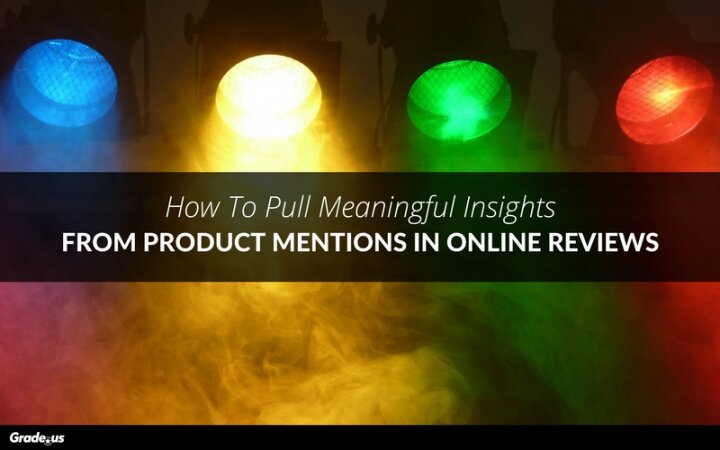- Joined
- Mar 15, 2016
- Messages
- 474
- Reaction score
- 252
How To Pull Meaningful Insights From Product Mentions in Online Reviews

Read the rest of Andrew's post here. He goes on to examine a few specific examples.


What's the worst part about marketing?
It's lying.
As people, we're conditioned to be nice, to be polite. This means customers are often hesitant to share their honest opinions upfront. Sometimes customers lie. Other times they may not know what they want. When they do, many of them don't want to tell you what they want.
Customers tell you what they think you want to hear.
What about that one product that's always mentioned in reviews?
In his book, How Customers Think, Gerald Zaltman notes 80 percent of new products and services fail within six months. These are the same products that were vetted through focus groups. These companies spend a significant amount of money on research, yet they fail anyway.
Why?
Research from CB Insights found 42 percent of startups failed for one surprising reason.
No market need.
Save
There's an easy solution to this incredibly common problem. Reading reviews.
Seriously.
There's a treasure trove of actionable data lurking inside product and service reviews. Your reviews, competitor reviews - it doesn't really matter. It's the kind of data your competitors would love to have.
What kind of data are we talking about here?
? Who (or what) you're actually competing with. Let's say you have a specific competitor in mind. Is that the competitor customers are actually evaluating you against? Are they comparing you to a specific competitor outright or simply aspects from a variety of products and services?
? Customer frustrations and pain points. Sometimes we get it wrong. Sometimes the problems we think customers want solved most are actually secondary or tertiary problems. Reviews show you whether you're focused on the right problem.
? Why you (or your competitors) aren't getting the reviews you want. When customers repeatedly mention a specific product in their review there's a reason. Sometimes they're evaluating aspects of that product or service. Sometimes they're unhappy that a specific expectation or need wasn't met. Other times they're looking to reinforce preferences.
? Key competition points. Is there a specific reason customers prefer your product over your competitors? Do their reviews disclose a desire for features or functionality your competitors aren't offering? If you know why customers choose (or don't choose) your product, you know what you should be talking about.
? Customer habits and interests. Are customers using your product or service for something unexpected or unconventional? How do they use your product or service? Do they have a specific routine that's built around your product or service? For example, some customers frequent specific restaurants at lunch time. Some clients decide they need PR or SEO help but only after something goes wrong.
Customers have a tendency to be "nice." Reviews are the antidote to that problem.
And the greatest area of learning?
That one product that always seems to be mentioned in reviews.
Read the rest of Andrew's post here. He goes on to examine a few specific examples.




